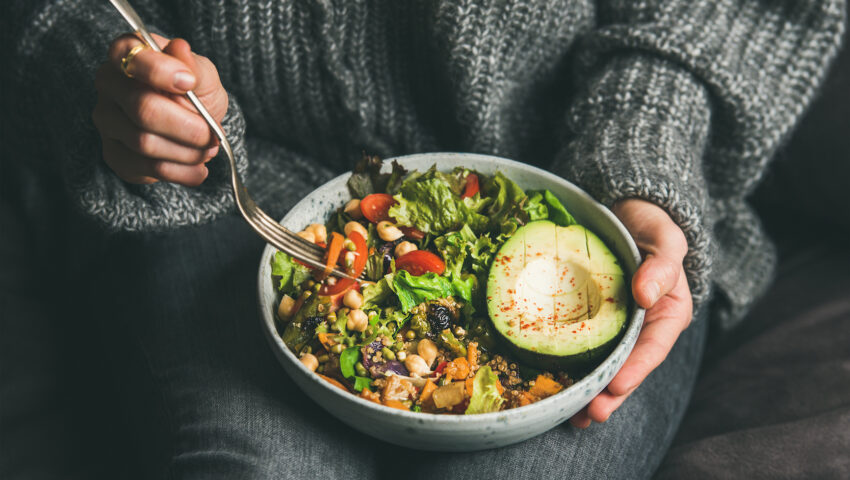Blogs
Women’s Health

Women’s health is influenced by a variety of factors, including genetics, lifestyle, and diet, with requirements changing through different life stages such as menstruation, pregnancy, lactating and later in life, menopause.
Nutrition is essential for maintaining good health, and there are certain key nutrients that women should focus on to optimise their well-being.
UK government daily dietary recommendations for adult women
| Energy | 2000kcal |
| Fat | No more than 78g (35% food energy) |
| Saturated fat | No more than 24g (11% food energy) |
| Carbohydrate | At least 267g (50% food energy) |
| Free sugars | No more than 27g (5% food energy) |
| Protein | 45g |
| Fibre | 30g |
| Salt | No more than 6g |
It is important to note, there is no ‘one-size fits all’ – these are recommendations to help us achieve a healthy balanced diet. We are all unique and our lifestyles will vary such as how physically active we are, therefore these need to be adapted to meet individual needs.
Some Key Nutrients for Women’s Health:
Iron
- An important mineral in the production of red blood cells that carry oxygen around the body as well as support our immune system and prevent tiredness.
- Women lose iron during their menstrual cycle, and pregnant women need extra iron to support their growing foetus.
- Insufficient amounts can lead to deficiencies such as Anaemia.
- You can increase the amount of Iron available and absorbed by the body by also consuming foods high in Vitamin C.
- Iron Absorption can be hindered by the consumption of some drinks we have with our meals such as alcohol, tea, and coffee!
Top tip: always opt for water or a vitamin-C-rich drink where possible.
Sources:
red meat, poultry, fish, fortified cereals, nuts, and dark leafy green vegetables (i.e. broccoli and spinach).
Calcium
- Important to the development of healthy bones and teeth.
- Calcium is important during pregnancy and breastfeeding for the baby’s development, but it also helps protect the mother’s bones, as their skeleton can be used as calcium reserve.
- Did you know? In the UK, 1 in 10 Women has inadequate intake of Calcium, which can lead to the development of osteoporosis later in life.
- To help aid calcium absorption in the body, also consume foods rich in Vitamin D.
Sources:
dairy products, nuts, and soya beans.
Folic Acid (Folate)
- Is needed for the growth and development of new cells.
- This is important during pregnancy to help support the baby’s growth and development. It also prevents the risk of the baby developing neural tube defects such as spina bifida.
Sources:
fruit, vegetables, legumes, nuts, and fortified foods such as bread and cereals.
Omega 3 Fatty Acids
- Important for the brain, eye, and heart health.
- In the UK, 1 in 11 women pass away from heart disease.
- It is recommended we should be aiming to consume at least one portion of oily fish (140g) weekly, currently, the average weekly for women is 56g!
- Not only does Omega 3 help with the development of the baby’s brain and eyes during Pregnancy, but Studies have suggested that omega 3 can have a positive role in preventing menstrual syndrome and postmenopausal hot flushes.
Sources:
oily fish (i.e., Salmon, Mackerel), nuts and seeds (i.e., walnuts, pumpkin seeds, chia seeds), Vegetable oils (rapeseed oil), and fortified products.
Overall, to ensure you have the adequate nutrition you need, it’s important to follow a balanced diet that includes all the food groups, as well as paying close attention to the key nutrients essential to women’s health: calcium, iron, folate, omega-3 fatty acids, and vitamin D.
You can download Charlotte’s great guide to women’s health here:
Vitality- Celebrating Womens Health
References and Further Reading:
https://www.nutrition.org.uk/life-stages/women/nutrition-recommendations-for-women/
https://www.nutritionist-resource.org.uk/articles/womens-nutrition.html
https://www.bda.uk.com/resource/calcium.html
Tang S, Du Y, Oh C, No J.( 2020) Effects of Soy Foods in Postmenopausal Women: A Focus on Osteosarcopenia and Obesity. J Obes Metab Syndr.
Bourre, J. (2007), Dietary omega3 fatty acids for women. Biomedical & Pharmacotherapy.



